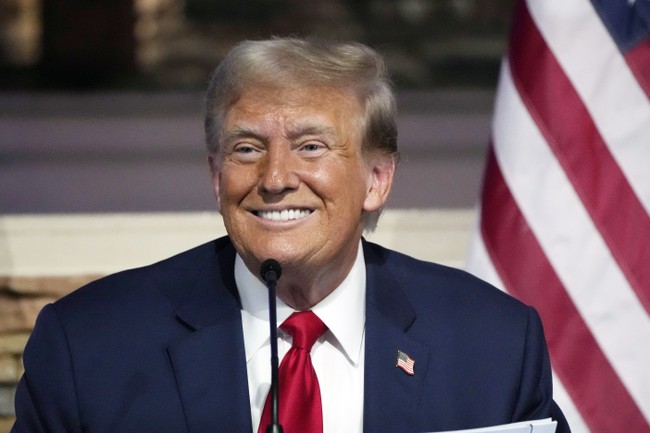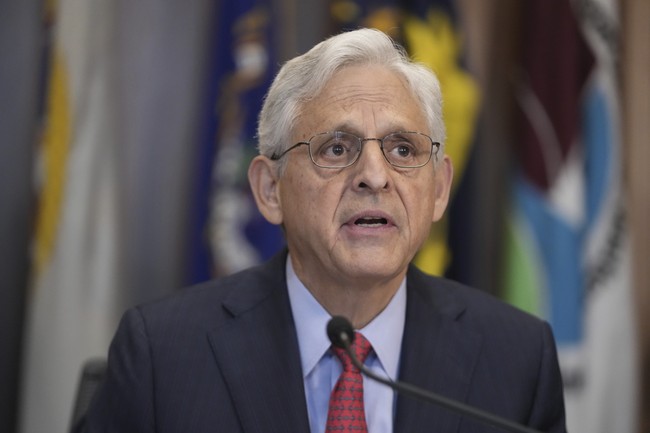Trump's IVF Support Stirs Debate Ahead of Election
Former President Donald Trump's endorsement of IVF coverage has ignited reactions from both political aisles, reflecting broader discussions on reproductive rights and healthcare in America.
Published August 31, 2024 - 00:08am

Image recovered from washingtonexaminer.com
Former President Donald Trump's recent advocacy for insurance or government-funded in vitro fertilization (IVF) treatments has sparked significant debate across the political landscape. His announcement comes as both a bold policy proposition and a potential campaign strategy aimed at appealing to families and individuals facing fertility challenges.
Trump, speaking at a Michigan steel plant, declared, I am announcing today that under the Trump administration, your government will pay for or your insurance company will be mandated to pay for all costs associated with IVF treatment. He emphasized the need for more children in America, stating, We want more babies, positioning the policy as a pro-family initiative.
Hours before this announcement, the California Senate passed State Senate Bill 729, which aims to expand insurance coverage for infertility treatments, including IVF. Championed by Democratic lawmakers Caroline Menjivar and Buffy Wicks, the bill seeks to provide comprehensive fertility services, especially to the LGBTQ community, which has been historically excluded from such benefits. Wicks highlighted the importance of the bill, stating, This bill requires both large and small healthcare plans to provide diagnosis and treatment of infertility and fertility services.
However, Trump's proposal has not been without criticism. The campaign of Vice President Kamala Harris, who has made reproductive rights a central theme of her candidacy, has been vocal in its opposition. Elizabeth Warren, a spokesperson for the Harris campaign, criticized Trump's new stance, calling it smoke and mirrors. Warren argued that Trump's record on reproductive rights, specifically his role in appointing Supreme Court justices who overturned Roe v. Wade, contradicts his latest IVF promise. She stated, Trump thinks women are stupid and that we can be gaslighted, emphasizing that the electorate will not be easily swayed by what she perceives as a contradictory campaign promise.
Highlighting the broader context, Harris campaign spokesperson Sarafina Chitika underscored the implications of the Supreme Court's decision on Roe v. Wade for IVF access. Chitika remarked, Because Trump overturned Roe v. Wade, IVF is already under attack and women's freedoms have been ripped away in states across the country. The Harris campaign has framed Trump's IVF proposal as insufficient in addressing the comprehensive reproductive healthcare needs of American women.
The controversy surrounding IVF coverage extends beyond political rhetoric to practical implications. Trump has yet to provide specific details on how his administration would finance the proposed IVF coverage. Critics argue that without a clear funding plan, the announcement may remain a mere campaign promise. Moreover, the cost implications of such a policy remain a point of contention, as California's proposed bill has faced opposition from the state's Department of Finance and the California Chamber of Commerce, citing potential cost increases for insurance premiums.
The issue of IVF coverage is not confined to federal proposals. Across the United States, state laws regarding infertility treatment coverage vary significantly. Some states, particularly in the Northeast, mandate insurance coverage for IVF treatments, while others like California do not require comprehensive infertility treatment coverage. This patchwork of state laws underscores the complexity of the issue and the challenges of implementing a uniform policy nationwide.
Trump's position on IVF is part of a broader campaign strategy that includes other significant policy proposals. His recent campaign stops have highlighted themes of economic growth, energy independence, and national security. In his speech at Alro Steel, Trump announced a plan to cut energy costs by increasing production and supply, criticizing the current administration's energy policies. He also touched on controversial topics such as transgender women in sports, pledging to keep men out of women's sports, reflecting his broader stance on social issues.
As the presidential campaign intensifies, Trump's IVF proposal is likely to remain a focal point of debate. It represents a confluence of healthcare policy, reproductive rights, and electoral strategy. Whether it will resonate with voters or be seen as a tactical move in an election year remains to be seen. The outcome of this debate may influence not only the upcoming election but also the future direction of reproductive healthcare in the United States.
In summary, Trump's advocacy for IVF coverage has sparked a multifaceted debate involving political, economic, and social dimensions. His proposal has been met with both support and criticism, reflecting the broader national discourse on reproductive rights and healthcare. As the election approaches, the dialogue surrounding this issue will likely continue to evolve, influencing voters and shaping policy discussions in the years to come.







